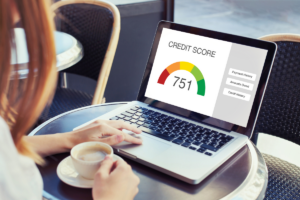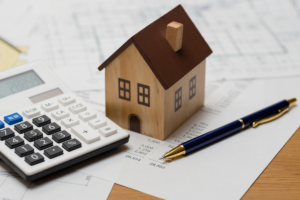Top 10 Tips For First-Time Homebuyers Mortgages in Victoria
Are you getting ready to buy your first home in Victoria? Finally, escaping from the endless cycle of renting and enjoying the freedom of owning a property is an exciting time—but there are also plenty of things to consider.
The first is how to get a mortgage. If you’re new to the mortgage application process, it can seem daunting. However, we’ve put together a helpful guide that turns a potentially stressful journey into a fun-filled one.
Discover 10 helpful tips for first-time homebuyer’s mortgages in Victoria right here.
Best Tips For Your First-Time Mortgage
Applying for a mortgage means you’re often jumping through a lot of hoops and navigating a maze of paperwork. These tips will help you understand your responsibilities and simplify the application process.
1: Consider Your Down Payment
Saving money in advance and building a healthy down payment gives you access to a broader selection of mortgage companies. Here’s a quick guide on how to maximize your savings as a first-time homebuyer.
2: Get A Mortgage Pre-approval
You might think you know what you can afford, but mortgage providers base the amount you can borrow on multiple factors. Securing a pre-approval mortgage lets you understand what type of rates you’ll get and which properties to look at.
A mortgage calculator can be beneficial if you’re looking for a ballpark figure. However, it’s best to speak to a professional mortgage broker, as they’ll assess your circumstances and connect you with suitable lenders.
Obtaining a pre-approval lets sellers know you can afford the property, making your offer more attractive.
3: Know Your Credit Score and History

Credit scores form a significant component of a mortgage company’s decision. Why? Because they provide an accurate look at your financial history and enable lenders to assess whether you’re a responsible borrower.
If you’re unsure of your credit score, reference agencies like Equifax and Experian let you perform a free check. According to Equifax, your score should be over 660 to be considered “good,” but aiming to achieve a higher score could diversify your mortgage options.
4: Homeowner Grants and Assistance Programs
The 2024 Federal Budget introduced incentives for first-time buyers. Canada’s Home Buyers Plan is making ownership more affordable for everyone and removing some previous obstacles.
Buyers can now withdraw up to $60,000 from their RRSP (Registered Retirement Savings Plan), an increase of $25,000 from before. Additionally, a 30-year amortization available on NEWLY built homes will help reduce monthly mortgage payment obligations.
5: Determine How Much Of A Mortgage You Can Afford
Mortgage affordability depends on multiple factors, not just your down payment. The first thing they’ll look at is your monthly income to decide whether you can make the repayments.
Any outstanding debts, including loans and credit cards, are also a factor in the decision. Mortgage companies also examine your overall debt, income and overall ability to pay the contracted mortgage payments.
The lender must also qualify all borrowers inside the federal mortgage stress test, which may also limit your property choices.
6: Gather All Of Your Loan Paperwork
Applying for a mortgage means filling out a lot of paperwork and ensuring the company has everything it asks for. Gathering important information in advance can make the process much easier.
Mortgage companies often ask for the following:
- Identification: Your passport and driver’s license are government-issued forms of identification, and most lenders will expect either.
- Proof of Address: Most lenders also want to see your proof of address, which can be rental agreements or utility bills.
- Employment and Income: Tax returns, pay slips and income verification are all essential when proving your eligibility to lenders. Some mortgage companies might request proof of employment from your workplace.
- Bank Statements: You’ll also need to show recent bank statements to let lenders see how you manage your money. It also verifies whether you can afford monthly mortgage payments.
- Proof of Debt: Collect credit card statements and loan agreements for the lender to review. This will allow them to process your application.
Collect your mortgage application documents early and make digital copies of them. This makes it easier for lenders to access your information and can speed up the mortgage application process.
7: Pay Down Your Credit Cards
Now for the most important part; paying down your credit cards. No mortgage company wants to offer money to someone with a high credit utilization rate, but reducing your bills positively affects your application.
Dealing with huge amounts of credit card debt can be challenging, but there are two methods that can help:
Snowball Method
The snowball method can be beneficial, as you’ll focus on paying the smallest credit card balance off first and work your way up. However, this method can also slow you down, as it doesn’t factor in high credit card bills.
Avalanche method
The avalanche method is the most effective way to reduce credit card debt. First, pay off the card with the highest interest rate. Then, work your way down. Using the avalanche method will also result in lower monthly credit card repayments.
8: Reduce Your Available Credit
Reducing your available credit isn’t essential, but it can help with your mortgage application. For example, if you have a higher amount of available credit, lenders might view you as a higher-risk applicant because you could get into debt.
Potential debt can increase your Debt to Income ratio, limiting your mortgage options. You don’t need to eliminate your available credit, which could also impact your score.
9: Understand The Closing Costs

Mortgage closing costs can trip a lot of people up as they focus on the down payment, but there are certain fees to be aware of, including:
- Legal Fees: Real estate lawyers handle your transaction, and you’ll need to pay them for their services. The rates often cost between $500 and $1000, depending on your lawyer.
- Land Transfer Tax: LTT rates in BC are calculated based on the property’s value. You can calculate how much you’ll pay on the British Columbia website.
- Inspection Fees: Appraisals enable the lender to assess whether the property is a wise investment. Depending on the mortgage company, they usually cost around $300. Building inspections vary in cost but are integral to the purchasing process.
Moving costs, insurance rates and other fees vary depending on your personal circumstances.
10: Set A Firm Budget
It’s easy to get carried away when buying your first home. Mortgage companies might offer you a considerable amount, but that doesn’t necessarily mean you should use all the money.
Think about your monthly repayments and decide what you can realistically afford. It’s essential to factor in potential changes in employment, relationships and children.
Once you have this information, setting a budget and feeling confident that you’ll enjoy your new home will be easier.
Book A Free Consultation For Your Victoria Mortgage
Once you secure a mortgage, you can look forward to moving into your property and enjoying a new lifestyle. Being in control of your home, not dealing with rental agencies and making changes to the decor is worth the initial application process.
If you’re a first-time buyer and want to secure the best mortgage rates, our professionals are here to help. Prime Mortgage Works has access to a vast network of lenders outside of traditional banks, who can help secure your best Victoria mortgage rate.
We’ll support you throughout the process, ensuring you have everything you need to transform from renter to owner.


